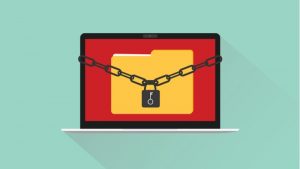North Carolina is consolidating and optimizing enterprise IT functions across the state. The goal is to achieve economies of scale, gain new analytical capabilities, and deliver unique experiences for state agencies and divisions.
Alongside state governments across the United States, Ohio Department of Administrative Services (DAS) is an IT service broker for a series of state agencies, helping to achieve economies of scale. Over the past five years, the team led by Renee Evans, enterprise service management program administrator for Ohio DAS Office of Information Technology (OIT), has modernized its systems to track costs and IT service consumption, invoice for service usage, and has given service owners and end users significantly improved visibility into IT usage trends.
The National Association of State Chief Information Officers (NASCIO), released a new guide May 14 on the topic of “multisourcing.” NASCIO describes the guide, which it developed in partnership with Integris Applied Marketing, as a “playbook” that can be used by any state, local, or tribal government to “design a path towards a modern multi-supplier delivery model that supports the demands and forces placed on the state CIO.”
The City of San Francisco became the first city in the United States to ban law enforcement, as well as other city agencies, from using facial recognition technologies when its Board of Supervisors on Tuesday approved the Stop Secret Surveillance Ordinance.
The New York State Office of the Comptroller’s IT team wanted to deploy new processes and tools to address their 3,000 employee’s IT service requests, recognizing that delays impact both employees and the citizens they serve.
With 67 percent of millennials wishing for more meaningful work, government agencies must reduce menial tasks and implement digital workflows to “give people more time to do the job they applied to do,” explained John Asquith, Innovation Lead for Government at ServiceNow, during their Knowledge 2019 conference on May 7.
A new report from cybersecurity firm Recorded Future found that ransomware attacks against state and local governments are on the rise.
Rhode Island residents hit by cybercrime have a new place to turn to for help. Beginning today, Rhode Islanders can now dial 2-1-1 to report cybercrime, including online fraud, and receive help with the aftermath, such as re-securing electronic devices.
In honor of World Password Day on May 2, OneLogin released a new report on corporate password practices.
Recent
-
 Trump Signs Order to Preempt State AI Laws and Push Single Federal Framework
Trump Signs Order to Preempt State AI Laws and Push Single Federal Framework -
 Government, Industry, Academia Collaboration Fuels AI Progress
Government, Industry, Academia Collaboration Fuels AI Progress -
 Indiana DOE Partnership Targets STEM, Digital Learning Tools
Indiana DOE Partnership Targets STEM, Digital Learning Tools -
 States, Schools Harness Data and Workforce Programs to Combat Fraud, Cyber Threats, and Service Outages
States, Schools Harness Data and Workforce Programs to Combat Fraud, Cyber Threats, and Service Outages









